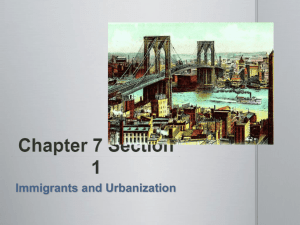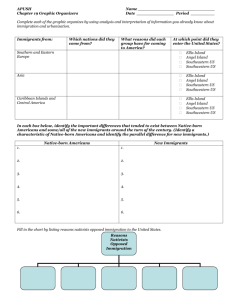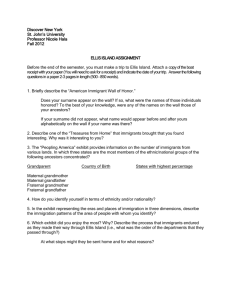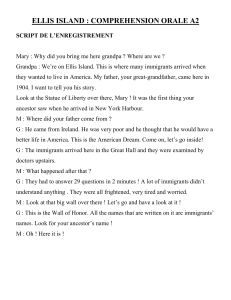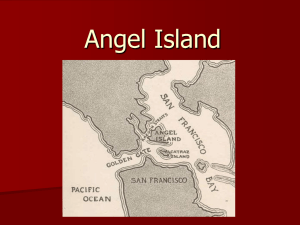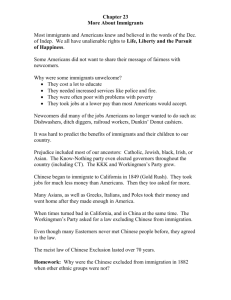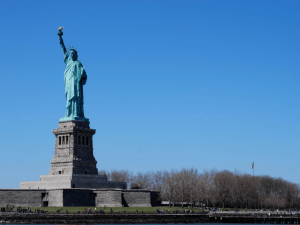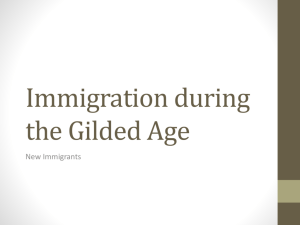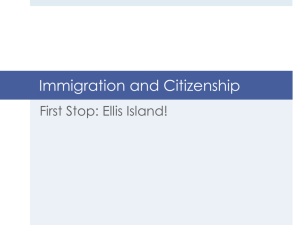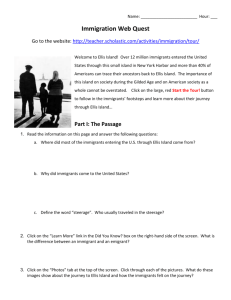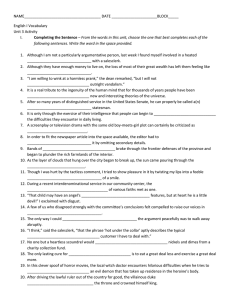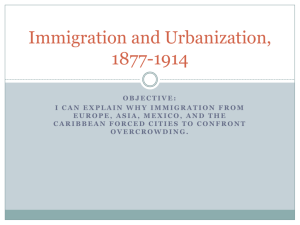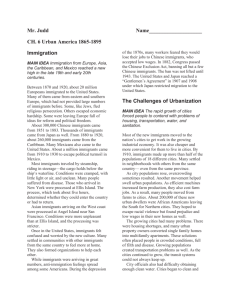New Immigrants Ch 7-2
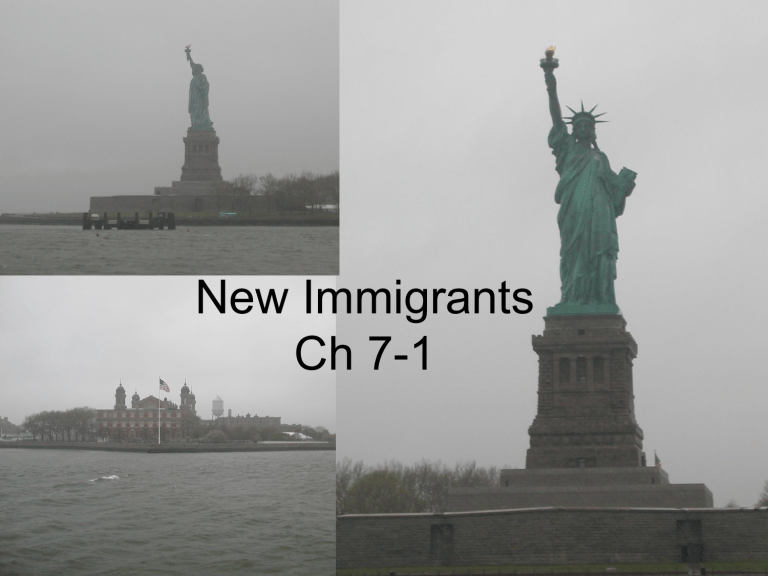
New Immigrants
Ch 7-1
Why did so many people leave their homelands?
• Europeans
• Many left to escape religious persecution.
• Many left because of rising population. In less than 100 years the population of Europe doubled to 400 million.
• Chinese and Japanese
• Many Chinese came to find gold during
California's Gold Rush.
• Japan allowed workers to go to Hawaii and work as farmers on 3 year contracts.
• Mexico (1910)
• During the Mexican
Revolution, many Mexicans immigrated to the U.S.
Nearly 700,000 in 20 years.
Ellis Island
• Ellis Island, located in New York Harbor, was the location where 17 million immigrants passed through between 1892 to 1924.
• In order to be allowed entry to the United
States, immigrants had to pass through physical exams.
• The requirements to pass were a good bill of health, never been convicted of a felony, ability to work, and must have at least $25.
Ellis Island
Angel Island
• Angel Island was the equivalent of Ellis
Island but located in San Francisco Bay.
• Between 1910 and 1940 50,000 Chinese immigrants entered the US through Angel
Island.
Immigrant Survival
• Many immigrants sought out people who shared their cultural values, religion, and language.
• Ethnic communities came about along with churches, cemeteries and their local newspaper in their native language.
Restrictions
• Many believed that the US had become a melting pot, a mixture of cultures that blended together and abandoned their native languages and customs.
• Nativismfavoritism towards people born in the US.
• Nativism led to anti-immigrant feelings as well as a demand for immigrant restrictions.
• Many people born in the US were
Protestant and believed that the Roman
Catholics and Jewish immigrants would destroy the democratic institutions that were founded by the Protestant founders.
• The American Protective Association launched anti-Catholic attacks and prohibited them and Jews from being admitted to colleges and businesses.
Chinese Exclusion Act (1882)
• This act banned Chinese from entering the
Unites States for ten years until 1892.
• The act was renewed for another 10 years until 1902.
• In 1902 Chinese Immigration was banned forever.
• The law was repealed in 1943.
The Gentleman’s Agreement
• In 1906, San Francisco segregated Japanese children by putting them into separate schools.
• Under the Gentleman’s Agreement (1907-1908),
Japan agreed to limit emigration of unskilled workers to the US in exchange for the repeal of the segregation order.
• Between 1870 and 1900 the population of the
US boomed due to immigration and industrialization.

